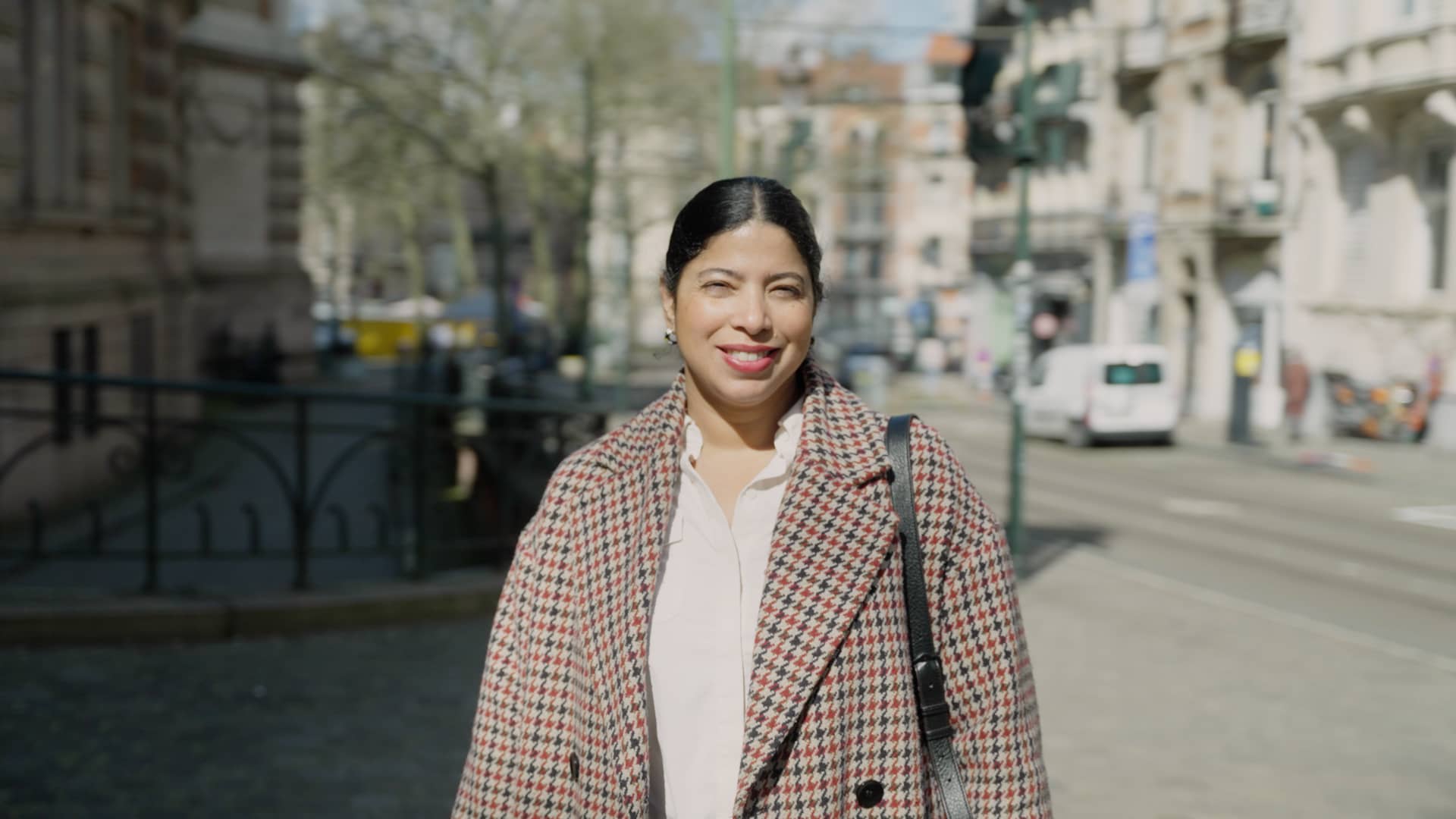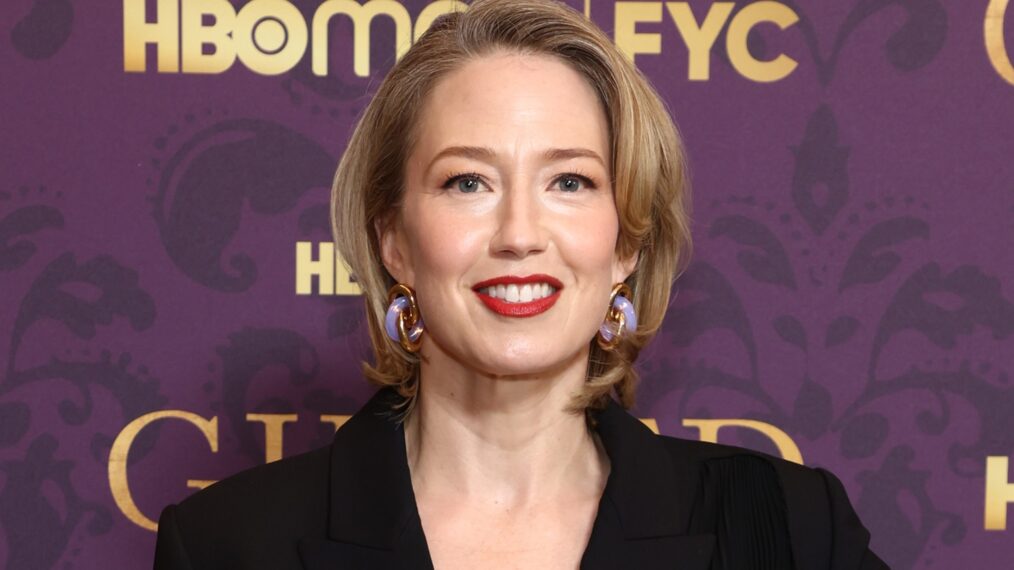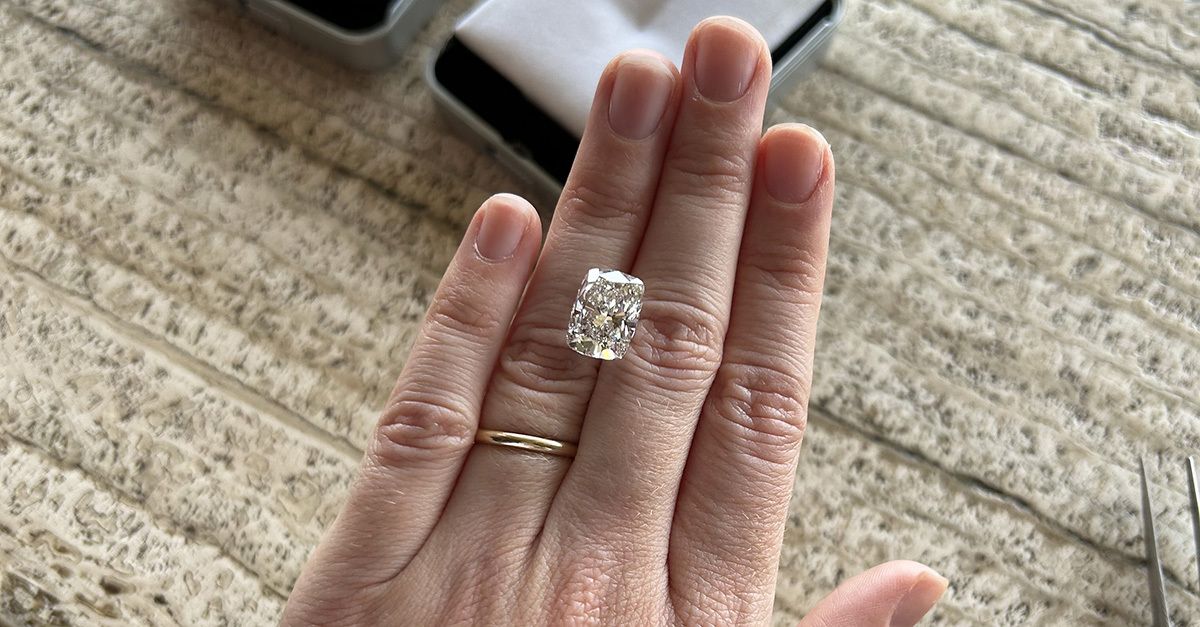My husband Martin and I met in Brussels in 2012, when I literally stepped on his toes at my neighborhood farmer’s market. At the time, I was working as a security manager at NATO headquarters, and he was on a business trip from his home in the Netherlands.
Three days later, we went on our first date. Five weeks later, I moved to Washington, D.C., to take a post at the Pentagon. Almost a year and a half later, we decided we’d get married and he’d join me in D.C.
As a Marine Corps reserve officer, I took advantage of my VA loan benefits, and we bought a small home in 2014. We brought our newborn daughter home there in 2016.
But we always knew we wanted to move back to Europe eventually.
Finding ‘the one’ in Brussels
When the pandemic hit, it gave us time to pause and plan our long-awaited return to Europe.
We wanted to be a short drive away from my in-laws in my husband’s hometown of Rotterdam as they aged. We ultimately chose Brussels, the capital of Belgium and the administrative center of the European Union. We calculated that we could live there for less than D.C. or the Netherlands, and it’s only 90 minutes from Rotterdam.
It helped that I already had a solid network of friends in Brussels, too.
Jessica calls Martin her “90-day fiancé.”
Courtesy of Jessica van Dop DeJesus
We sold our D.C. home for $899,000 in 2021 — a 67.7% increase compared to what we’d paid for it. And after a year renting in Brussels, we started looking for a place to buy. Our two main requirements: It had to be walking distance to our daughter’s school and have an outdoor space big enough to eat outside.
Six months and 20 apartments into our search, we finally found “the one” in Saint Gilles, the neighborhood south of the city center where I’d lived before.
I fell in love with the 14-foot ceilings, the Art Nouveau buildings, and the great parks nearby.
One of Jessica’s favorite things to do in Brussels is go to the markets. There are cafés nearby where she likes to order a coffee or, “if I’m feeling a bit festive,” a glass of wine.
Federico Campanale
We offered 547,500 euro, or $586,767, for the apartment in Brussels, leveraging the cash we had from the sale of our D.C. home to put down a 10% down payment of $58,677 and securing a 20-year mortgage with a 3.59% interest rate.
Take a look inside our apartment
We live in a street-level duplex in a building with only three apartments. It’s slightly smaller than our D.C. home, but it’s been worth it. Our neighborhood is equivalent to Logan Circle in Washington, D.C., where a place like ours could easily cost double or more. We’ve been able to add our own touches.
The front door leads into our dining room — one of my favorite parts of the apartment because of its high ceilings and large space for our long dining table, where we host many dinner parties.
Jessica is a food and travel content creator, and cooks pretty much every day. She loves that she and her family can host dinner parties in the dining room.
Federico Campanale
Next to the dining room is our living room, where I made a “fitness nook” with my stationary bike and weights so I can work out while watching TV.
We added an American-style stove and oven that fits my Thanksgiving turkey, as well as a wine fridge to our galley kitchen. We put in terrazzo floors as an homage to my childhood home in Puerto Rico.
“In Europe usually ovens are very tiny, but not the case with me because I love a big Thanksgiving turkey,” Jessica says.
Federico Campanale
Toward the back of the first floor, a small room doubles as an office and a sitting room. Large sliding doors lead to our two-level terrace, one with a large table we use in the warmer months.
Jessica and her family like to eat outside on the terrace in the warmer months. Above and beyond the patio, she says, “we have a beautiful view of the city hall.”
Federico Campanale
The bedrooms, laundry room, storage, and bathroom are on the bottom floor.
Lack of closets and storage space is common in European apartments. Fortunately, the former owners made a storage system under the stairs, which we use for extra clothes, household items, wines, and photography equipment.
“My daughter’s room still has the home’s original tile, which we love,” Jessica says.
Federico Campanale
We have an average-sized bedroom with a walk-in closet and a small guest bedroom with a full-sized bed.
Our bathroom is big for European standards with a shower and tub, and we plan to renovate it in 2025.
The bedroom is “very basic,” Jessica says.
Federico Campanale
Currently, our monthly housing costs in Brussels include our mortgage ($2,931) and condo fee ($65) as well as utilities such as electricity ($73), gas ($70), water (about $50), and internet and cable ($68).
Our life in Brussels
I miss being within driving distance of my family in Western New York. The main sacrifice of this move is being so far from people I’m close to. But we’re happy to be in Brussels.
Our neighborhood, Saint Gilles, has always been one of my favorite parts of the city, filled with Portuguese, Brazilian, Eastern European, Italian, Latin American, and North African restaurants and shops. We even had a Latino-themed Christmas market with Colombian food stands and live salsa music sponsored by the town hall last year!
Our daughter, now seven, is a half-Dutch, half-Puerto Rican, third-culture kid, so we wanted her to grow up in a diverse community.
Jessica’s seven-year-old daughter already speaks English, Dutch, and Spanish, and will start learning French at school next year, too.
Federico Campanale
Belgium shares borders with four countries: the Netherlands, Germany, Luxembourg, and France. This close proximity makes it easy to take a quick weekend trip to explore even more places and cultures.
I can’t say leaving the U.S. for Europe meant the end of all our problems. But I feel more content and at ease here. I don’t worry as much about school shootings, for example, or the potential loss of employer-sponsored healthcare. We can afford to live, get childcare for our daughter, eat and cook like the foodie I am, and travel regularly.
And we can embrace a slower pace of life and a culture that prizes friends and vacations at least as much as work.
Jessica van Dop DeJesus is a freelance journalist, a digital media strategist, and the founder of The Dining Traveler, a multimedia digital platform covering food and travel. Jessica was raised in Puerto Rico and began traveling as a young Marine over 25 years ago. She currently serves as the Latinx facilitator for the Breaking Barriers in Entrepreneurship program for Bunker Labs, providing mentorship to aspiring veteran entrepreneurs. Follow her on Instagram, Facebook, Twitter, Pinterest, and YouTube.
Want to make extra money outside of your day job? Sign up for CNBC’s new online course How to Earn Passive Income Online to learn about common passive income streams, tips to get started and real-life success stories. CNBC Make It readers can use special discount code CNBC40 to get 40% off through 8/15/24.
Plus, sign up for CNBC Make It’s newsletter to get tips and tricks for success at work, with money and in life.


























































![Mason Ramsey – Twang [Official Music Video] Mason Ramsey – Twang [Official Music Video]](https://i.ytimg.com/vi/xwe8F_AhLY0/maxresdefault.jpg)




















